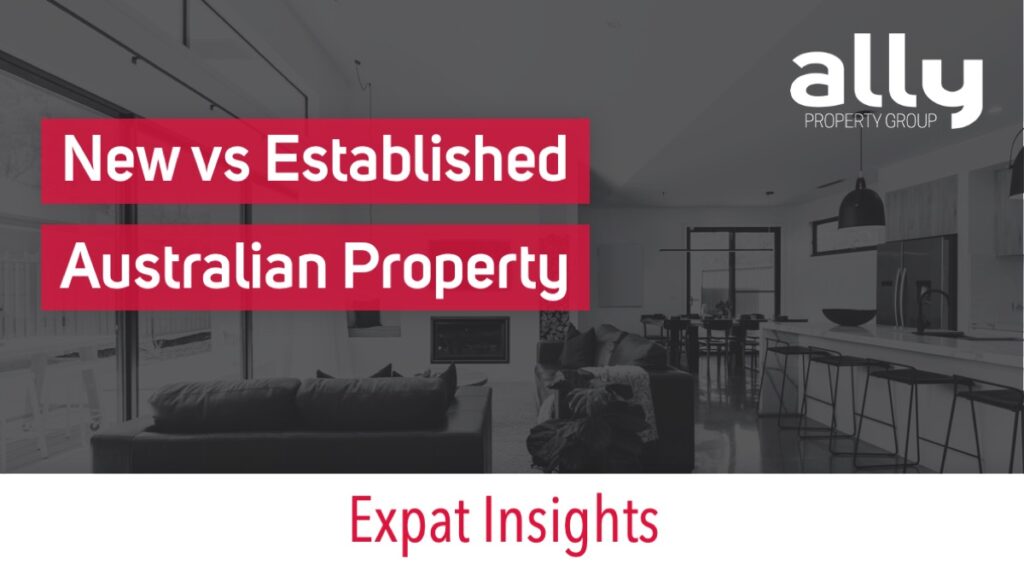Home Builder's Insurance in Australia - Protecting Your Investment
Home Builder's Insurance in Australia is a crucial safeguard for your construction journey. If you're planning to build or renovate your dream home, understanding Domestic Building Insurance (DBI) is essential. It's not just about compliance; it's about protecting your future, your dreams, and your investment. Let's dive into why DBI is a game-changer in the construction industry and how it can be a lifesaver for homeowners like you.
What is Domestic Building Insurance (DBI)?
Imagine you've embarked on the exciting journey of building your home. The design is perfect, the location is ideal, and you've hired a builder you trust. But what if the unexpected happens? What if your builder, due to unforeseen circumstances like insolvency, death, or disappearance, can't complete your home? That's where Domestic Building Insurance comes into play.
DBI, also known as Homeowner's Building Insurance, is your financial safety net. It ensures that you won't be left in the lurch, facing unfinished construction or financial turmoil if your builder cannot complete the project or fulfil certain contractual obligations. It's a layer of security that backs you up, giving you peace of mind throughout the construction process.
Why Do You Need DBI?
Building a home is one of the most significant investments you'll make in your lifetime. It's not just a financial commitment but also an emotional one. Your home is where memories are created, where life unfolds. Therefore, it's imperative to protect this investment from the start.
DBI serves as that protective shield. It covers the cost of completing or rectifying your building project if your builder cannot. Think of it as a promise, a guarantee that your dream home will reach completion, ensuring that your investment is safe, no matter what.
How Does DBI Work?
The specifics of DBI can vary across different states in Australia, but the core principle remains the same: it is designed to cover you financially if your builder fails to complete the work or meet the quality standards due to insolvency, death, or disappearance. Typically, this insurance is mandatory for residential building projects exceeding a certain value, which varies by state.
When your builder takes out a DBI policy on your behalf, it's a sign of trustworthiness and reliability. It means they're committed to completing your project and adhering to quality standards. And if they can't fulfil this commitment due to extreme circumstances, the insurance steps in to cover the costs.
State-Specific DBI Requirements in Australia
Each state in Australia has its own rules and regulations regarding DBI, tailored to the unique needs and legal frameworks of the region. Let's take a brief look at how different states approach DBI:
New South Wales (NSW)
In NSW, Home Building Compensation cover, managed by the State Insurance Regulatory Authority (SIRA), is essential for residential building work valued over $20,000. This cover is your assurance that, even if your builder faces insolvency, death, disappearance, or has their license suspended, the necessary work on your home can still be completed.
Victoria (VIC)
Victoria requires Domestic Building Insurance for works exceeding $16,000. Managed by the Victorian Managed Insurance Authority (VMIA), this insurance gives you a safety net, ensuring that if your builder can't complete the job or faces severe issues, you're covered for up to $300,000 to rectify structural defects for six years and non-structural defects for two years.
Queensland (QLD)
In Queensland, the Home Warranty Insurance scheme is managed by the Queensland Building and Construction Commission (QBCC) and is mandatory for residential construction work over $3,300. It not only covers non-completion but also provides protection against defective work for up to $200,000.
Engaging with DBI: A Closer Look
Now, let's delve deeper into the essence of DBI and how it tangibly impacts your building journey:
- Financial Security: The primary role of DBI is to provide financial security. It ensures that even in the worst-case scenario, your investment is protected, and your building project can reach completion.
- Trust in the Building Process: Knowing that your builder has secured DBI fosters trust. It shows that they are reputable and have taken the necessary steps to protect both their business and your home.
- Compliance with Legal Requirements: Adhering to the DBI regulations in your state is not just about protection; it's also about compliance. Ensuring that your building project complies with local laws and insurance requirements is crucial for a smooth construction process.
Navigating the DBI Process
Understanding and navigating the DBI process can seem daunting, but it doesn't have to be. Here's a simplified approach to guide you through:
- Research Your State's Requirements: Start by understanding the specific DBI requirements and thresholds in your state. Each region has its own rules, and knowing these will help you ensure compliance.
- Select a Reputable Builder: Choose a builder who is well-versed in obtaining and managing DBI. Their experience and knowledge in this area are invaluable.
- Verify the DBI Policy: Once your builder has obtained DBI, verify the policy details. Ensure that it covers the full scope of your project and that you understand the terms and conditions.
- Monitor the Building Process: Stay engaged and informed throughout the building process. If there are any concerns or changes, discuss how these might affect your DBI coverage.
- Know Your Rights and Obligations: Familiarise yourself with your rights under the DBI policy and your obligations. Knowing what is covered and what is expected from you is essential in leveraging the full benefits of DBI.
State-Specific DBI Insights
New South Wales (NSW)
In NSW, the journey of securing your home starts with the Home Building Compensation cover. Managed by the State Insurance Regulatory Authority (SIRA), this cover is a must for residential building projects exceeding $20,000. The purpose is clear: to protect you if your builder cannot finish the job due to severe circumstances like insolvency, death, or disappearance.
When engaging with this insurance, you're looking at a process streamlined for homeowner protection. If you're in NSW, ensure your builder provides you with evidence of this insurance before work begins. It's not just about following the law; it's about ensuring that your investment is safeguarded from start to finish.
Victoria (VIC)
Venturing south to Victoria, the scenario shifts slightly. Here, Domestic Building Insurance (DBI), managed by the Victorian Managed Insurance Authority (VMIA), is mandatory for building works over $16,000. This insurance acts as a backbone for your construction project, covering up to $300,000 for structural defects for six years and non-structural defects for two years.
In Victoria, it’s crucial that your builder hands over a copy of the DBI policy and a certificate of currency before any financial transaction occurs. This transparency is vital in ensuring that your project is not just a dream but a soon-to-be reality, backed by the necessary financial protection.
Queensland (QLD)
Moving to Queensland, the approach to home building insurance, known as Home Warranty Insurance, introduces a layer of protection managed by the Queensland Building and Construction Commission (QBCC). For any residential construction work over $3,300, this insurance is a staple, safeguarding homeowners from the pitfalls of construction mishaps.
The insurance in Queensland is comprehensive, covering non-completion, defective work, and even damage from external events like fire or storm. With a maximum coverage of $200,000, it ensures that homeowners are not left disadvantaged if the unforeseen strikes.
Western Australia (WA)
In Western Australia, Home Indemnity Insurance, overseen by the Department of Mines, Industry Regulation and Safety, becomes relevant for building projects valued over $20,000. This insurance is pivotal in ensuring that financial loss is mitigated if your builder fails to complete the project or rectify defects due to severe reasons like insolvency or death.
It's important in WA to understand that while the builder or owner-builder takes out the insurance, as the homeowner, you are the beneficiary. This distinction emphasises that the protection is squarely aimed at safeguarding your interests and investment.
South Australia (SA)
In South Australia, the Home Building Compensation Fund (HBCF) stands as the guardian of your construction project. With mandatory coverage for all residential building work over $12,000, the HBCF ensures that homeowners are compensated for losses due to a builder's insolvency, death, or failure to comply with legal orders.
The coverage here is nuanced, providing up to five years of protection for structural defects and two years for non-structural defects. This layered approach ensures that homeowners have ample time to identify and address any construction-related issues.
The Role of Insurance in Building Your Home
Understanding and navigating the nuances of Domestic Building Insurance across different Australian states can be complex. However, this complexity is matched by the comprehensive protection it offers. As you embark on the journey of building or renovating your home, consider DBI not as a bureaucratic requirement but as a fundamental component of your project's success.
Insurance in the construction sector is not merely about compliance; it's about creating a secure environment where your dream home can rise from the ground, protected against unforeseen challenges. Whether you're in the bustling streets of Sydney, the cultural heart of Melbourne, or the sun-kissed shores of Queensland, DBI provides a uniform promise of security and reliability.
Navigating Your Construction Journey
As we wrap up this exploration of Domestic Building Insurance, remember that each Australian state has its own set of rules and protections designed to ensure that your home-building journey is safe and secure. From the financial thresholds that trigger the need for DBI to the specific protections offered, understanding these details is crucial.
Conclusion
Domestic Building Insurance in Australia is a pivotal element in the home construction journey, offering a shield against the unforeseen and ensuring that your home or investment property becomes a reality. By understanding and engaging with DBI, you’re not just complying with regulations; you’re taking a proactive step towards securing your future.
Embrace the journey of building your home with the knowledge that DBI provides a foundation of security and trust. With this in place, you can look forward to the day when your dream home is no longer just a plan on paper, but a tangible reality, ready to be filled with life and memories.
Embark on your property investment journey with Ally Property Group, your trusted ally in Australia's real estate market. Our expert advisers are dedicated to crafting personalised investment strategies for Australian expats and residents alike, aiming to enhance your portfolio and maximise returns. Start building your wealth with Ally Property Group, where strategic insights, analysis and modelling leads to prosperous investments.
We’re more than just property advisers. As Australian expats ourselves, we've navigated the intricate world of property investment both at home and abroad. With a legacy rooted in financial services, we offer a holistic, transparent, and strategic approach, ensuring you're equipped with the knowledge and confidence to make informed decisions.
Book an obligation-free, complimentary consultation here today.
General Information Warning: The information contained herein is of a general nature only and does not constitute in any way, personal advice. You should not act on any recommendation without considering your personal needs, circumstances, and objectives. We recommend you obtain professional property investment advice specific to your circumstances.
Pay it forward! Share this article with your friends and network.



